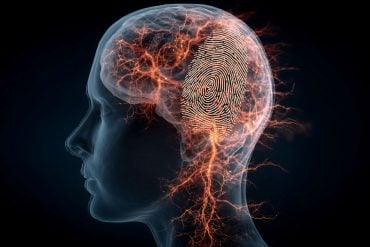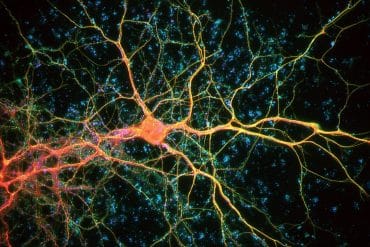Summary: A new meta-analysis links childhood emotional abuse and neglect to reduced trust in one’s bodily signals, highlighting the long-term mental health risks. Researchers analyzed 17 studies with 3,705 participants, finding that while maltreatment did not generally impair interoception, emotional maltreatment was strongly tied to lower body trust.
This diminished trust may impair emotional regulation, stress response, and self-care, increasing vulnerability to mental disorders. The findings underscore the urgent need to recognize and address the invisible harms of emotional abuse and neglect in children.
Key Facts:
- Body Trust Eroded: Emotional abuse and neglect are linked to reduced confidence in interpreting bodily signals.
- Mental Health Risks: Impaired body trust may contribute to anxiety, depression, and eating disorders.
- Hidden Harm: Emotional maltreatment remains under-recognized compared to physical and sexual abuse.
Source: TUD
“My heart skipped a beat” — a phrase familiar to anyone who’s ever received unexpected news — illustrates how bodily sensations are tied to our emotional experiences.
Psychology describes the underlying phenomenon as interoception.
This is the ability to perceive and interpret internal body signals such as heartbeat, breathing or stomach activity. This ability plays a central role in emotions, stress regulation and physical well-being.
In science, the development and significance of interoception is still poorly understood. However, increasing evidence suggests that it is an important common risk factor for both mental and somatic disorders.
The team at the Chair of Clinical Child and Adolescent Psychology at TU Dresden led by Prof. Anna-Lena Zietlow, has now conducted a meta-analysis of scientific studies to investigate whether there is a link between child maltreatment and interoception and which types of child maltreatment are particularly strongly associated with it.
The research team analyzed data from 17 studies with a total of 3,705 participants. While no general link was found between child maltreatment and internal body perception, a link was found between maltreatment experiences and reduced body trust. This link was particularly strong for emotional abuse and neglect.
First author Julia Ditzer explains: “Our results show that people who have experienced emotional abuse or emotional neglect in their childhood often report less trust in their own bodies.
“This can have far-reaching effects on mental health, as it can impair emotion regulation, perception of one’s own needs and stress processing, for example.
“This could be one explanation for why those affected by abuse and maltreatment are at increased risk of developing mental disorders such as anxiety disorders, depression, eating disorders or somatoform disorders.”
Dr Ilka Böhm, team member in the Zietlow lab, adds: “Despite the long-term consequences, these forms of child maltreatment have not yet been given the attention they deserve. Unlike physical or sexual abuse, they are less visible.”
Prof. Dr Anna-Lena Zietlow emphasizes: “We hope that our research will help to raise public and professional awareness of emotional abuse and neglect. Children need not only protection from physical violence, but also reliable and sensitive emotional care. Their emotional needs should be given much more attention, both in society and in research and preventive measures.”
Building on the results of the meta-analysis, the team is now conducting a study on the correlation between child maltreatment and interoception in adolescents aged 12–17.
About this neurodevelopment and psychology research news
Author: Magdalena Selbig
Source: TUD
Contact: Magdalena Selbig – TUD
Image: The image is credited to Neuroscience News
Original Research: Closed access.
“A meta-analytic review of child maltreatment and interoception” by Julia Ditzer et al. Nature Mental Health
Abstract
A meta-analytic review of child maltreatment and interoception
Interoception—the ability to sense internal bodily signals such as heartbeat or breathing—plays a central role in both mental and physical health.
Disruptions in interoception are increasingly recognized as important contributors to various psychological and medical conditions, yet the origins remain unclear.
One possible risk factor is exposure to childhood maltreatment.
Here we present a meta-analytic review examining the association between child maltreatment and different aspects of interoception. In this
Analysis, we use meta-analytic methods to examine the relationship between childhood maltreatment and interoception across 17 studies.
We found no consistent association between childhood maltreatment and interoceptive accuracy, sensibility, or awareness.
However, a history of childhood maltreatment—particularly emotional maltreatment—was associated with lower body trust, a dimension of interoception reflecting confidence in bodily signals.
These findings suggest that early adverse experiences may undermine the foundational sense of trust in one’s body, with potential long-term consequences for mental and physical health.







